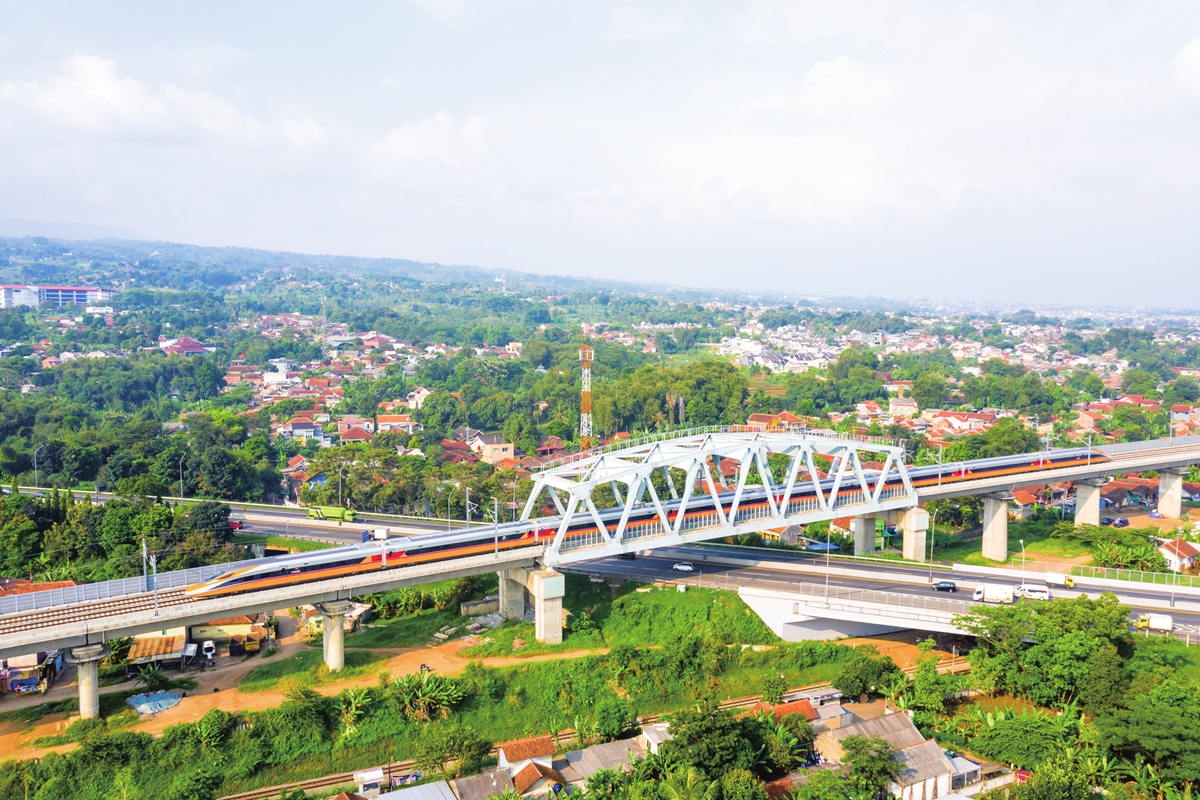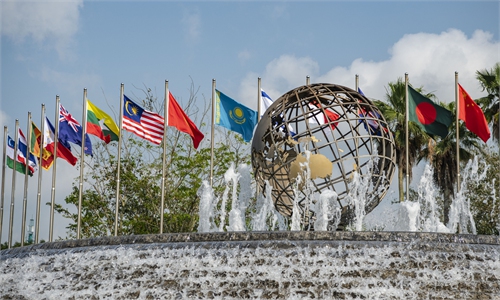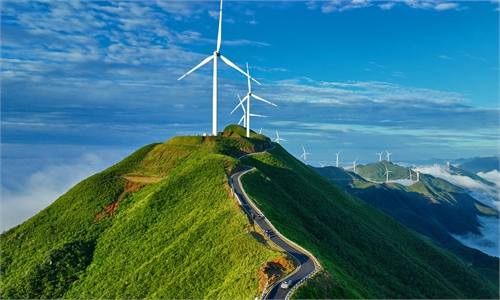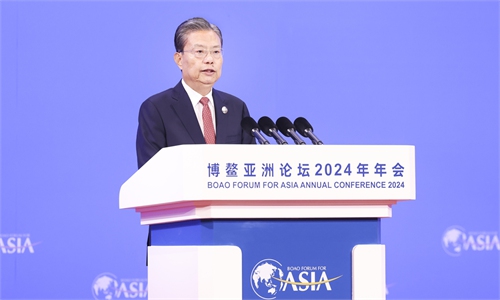BRI partners to embrace potential amid clean transformation
Green development, renewed cooperation

An aerial photo taken on May 22, 2023 showing a comprehensive inspection train running along the Jakarta-Bandung High-Speed Railway in Indonesia. Photo: cnsphoto
Amid a global low-carbon transition and ramped-up efforts for combating climate change, green development has become a focal point for the Boao Forum for Asia (BFA) Annual Conference 2024 in South China's Hainan Province from Tuesday to Friday, with a spotlight on the China-proposed Belt and Road Initiative (BRI) and its efforts to bolster the sustainable development for partner countries.
Since the BRI's inception more than 10 years ago, it has embarked on an ambitious journey and enhanced global connectivity and cooperation through infrastructure, Ban Ki-moon, the former UN secretary-general, said at a subforum themed "Financing a Greener 'Belt and Road' on Thursday.
As 2024 is the opening year of the second decade for the BRI, its progress in achieving green transformation will bring more cooperation and potential for partner countries to explore in the field of clean energy.
New decade, new opportunity
Senior officials from BRI partner countries who attended the subforum highlighted the strong cooperation established through the BRI, while expecting to further consolidate and extend the momentum under the green development.
For instance, Columbia is currently working on diversifying investment to its domestic rural sector, which will be a very good opportunity for Chinese investors, Carlos Eduardo Enriquez Caicedo, vice minister of transport from Columbia, told the Global Times on Thursday, adding that the subway project funded by Chinese companies is the most important project,
Caicedo noted that China and Columbia can further extend cooperation related to electrical vehicles specifically for taxis along with other sectors. He said that Columbia wants to invest in 45,000 vehicles that are allocated to taxis, aiming work with Chinese companies like BYD.
Laos and China have a long-standing and very productive partnership, Phonevanh Outhavon, vice minister of planning and investment from Laos, told the Global Times on Thursday.
Outhavon noted that large green BRI investments can be developed along the China-Laos Railway. She expected more cooperation to be born from the milestone project while more investment can be dedicated to promote sustainable development.
Moving forward, utilizing smart technologies in key sectors such as infrastructure construction and agriculture will be a major focus for bolstering green development under the BRI framework, Song Wei, a professor at the School of International Relations and Diplomacy at the Beijing Foreign Studies University, told the Global Times on Thursday.
With China being a leader in clean technology from electrical buses to solar panels and batteries, exporting the technology and providing finance can have a very large influence on the green transition in Asia, Frank Rijsberman, director general of Global Green Growth Institute (GGGI), told reporters on Thursday.
The integration of smart technologies as part of BRI cooperation will be conducive to promoting the economic upgrade and transformation of emerging economies, while China at the same time offers targeted support for BRI partner countries to make strides toward technical development, Song said.
China's massive manufacturing base and its speed to deliver renewable system are very important tools for timely delivery of projects on ground, Nishant Bhardwaj, global sector lead- renewable energy and deputy director at GGGI, told the Global Times on the sidelines of the BFA.
Bhardwaj noted that China is investing significantly in new technology development and low-carbon transformation, so it will play a very important role in promoting the global clean energy transition,
All-round efforts
As BRI partner countries are mainly developing economies, they may previously have sacrificed environment for achieving GDP growth, Song said. But the initiative has been prioritizing the green development while helping partner countries advance their economic progress since it was initially launched, she noted.
China jointly launched the Initiative for Belt and Road Partnership on Green Development together with 31 countries. The BRI International Green Development Coalition, which was launched by the Chinese Ministry of Ecology and Environment with its partners from home and abroad in 2019, now consists of more than 150 partners from 43 countries, including the environmental authorities of 26 countries as of August 2023.
China has made available its experience and technologies related to green development and governance with BRI partner countries in a wide range of fields such as environment management, advancing green economy, and utilizing renewable energy, Song said.
For instance, China is the only country in the world to have fully mastered Ultra High Voltage (UHV) core technology and possess a full set of equipment manufacturing capabilities. China has actively carried out international energy cooperation with the countries surrounding the BRI and integrated UHV transmission technology, standards and equipment, general engineering contracting, operation and management of the entire industry chain, and the entire value chain have been successfully exported internationally, according to the BFA Sustainable Development: Asia and the World Annual Report 2024.



